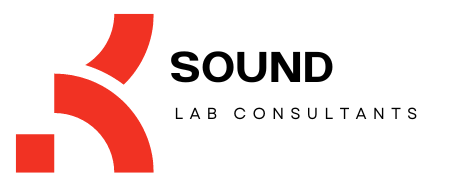

Laboratory Technical Consultant Scope of Work
Title: Understanding CLIA Technical Lab Consultants and Their Vital Role in Healthcare
In the complex and ever-evolving landscape of healthcare, a myriad of professionals play crucial roles behind the scenes to ensure accurate diagnoses and effective treatment. Among these unsung heroes are CLIA Technical Lab Consultants, individuals with a specialized skill set who play an integral part in maintaining the quality and compliance of clinical laboratories. In this blog, we will delve into what a CLIA Technical Lab Consultant is, the scope of their work, and why their role is indispensable for the healthcare industry.
Defining CLIA Technical Lab Consultants
CLIA stands for the Clinical Laboratory Improvement Amendments, a set of federal regulations in the United States that establish quality standards for laboratory testing to ensure the accuracy, reliability, and timeliness of patient test results. CLIA regulations apply to all clinical laboratories, including those that perform tests on human specimens for health assessment and diagnosis, treatment, or prevention of disease.
A CLIA Technical Lab Consultant is an expert in laboratory operations, quality control, and regulatory compliance. These professionals provide invaluable guidance to clinical laboratories to ensure they meet CLIA's stringent standards and adhere to best practices. Consultants can be individual freelancers or part of consultancy firms specializing in healthcare compliance.
The Scope of Work
The role of a CLIA Technical Lab Consultant is multi-faceted and comprehensive. Their work encompasses various aspects of laboratory operations to guarantee accurate results, patient safety, and adherence to regulations. Here are some key areas within their scope of work:
1. Quality Control and Assurance: Consultants assist laboratories in implementing robust quality control programs. This involves establishing processes to monitor and maintain the accuracy and precision of test results, including regular calibration of instruments, evaluation of testing methodologies, and proficiency testing.
2. Compliance with Regulations: CLIA regulations are complex and subject to frequent updates. Consultants stay current with these changes and help laboratories remain compliant. They assist in preparing for inspections, ensuring that documentation is in order, and addressing any deficiencies identified during inspections.
3. Test Method Validation: Before a new test can be introduced or an existing test method modified, it must undergo validation to ensure its accuracy, precision, and reliability. Consultants guide laboratories through this process, which involves rigorous testing and analysis.
4. Staff Training: Laboratory staff must be well-trained to carry out their tasks accurately and efficiently. Consultants provide training on proper laboratory techniques, safety protocols, and the handling of specimens to prevent contamination.
5. Equipment Evaluation and Maintenance: Inaccurate or faulty equipment can lead to erroneous results. Consultants help labs select appropriate equipment, establish maintenance schedules, and troubleshoot technical issues.
6. Data Management and Reporting: Accurate record-keeping is essential for tracking patient data and test results. Consultants aid labs in establishing efficient data management systems and generating accurate and timely reports.
7. Risk Management: Identifying and mitigating potential risks is crucial in healthcare. Consultants assess potential risks in laboratory operations and recommend strategies to minimize them, safeguarding patient safety and regulatory compliance.
8. Workflow Optimization: Efficient workflows improve overall lab productivity. Consultants analyze laboratory processes and suggest improvements to streamline operations while maintaining accuracy and quality.
9. Troubleshooting and Problem-Solving: When issues arise in the laboratory, consultants offer expert guidance in troubleshooting problems, identifying their root causes, and implementing effective solutions.
10. Continuous Improvement: The field of healthcare is dynamic, and laboratories must continuously improve their practices to stay current. Consultants facilitate ongoing improvement by keeping labs updated on industry trends and technological advancements.
Why CLIA Technical Lab Consultants Matter
The work of CLIA Technical Lab Consultants is indispensable for several reasons:
Patient Safety: Consultants ensure that laboratories produce accurate and reliable test results, which directly impact patient diagnoses and treatment plans.
Regulatory Compliance: Non-compliance with CLIA regulations can lead to penalties, loss of accreditation, and compromised patient care. Consultants help labs navigate the complex regulatory landscape and avoid such pitfalls.
Quality Assurance: Quality control and assurance are paramount in healthcare. Consultants play a pivotal role in maintaining the highest standards of accuracy and reliability.
Operational Efficiency: By optimizing workflows and processes, consultants help labs operate more efficiently, reducing turnaround times for test results and enhancing overall productivity.
Risk Mitigation: Consultants help laboratories identify and mitigate potential risks, safeguarding both patient outcomes and the reputation of the healthcare institution.
In conclusion, CLIA Technical Lab Consultants are unsung heroes in the realm of healthcare. Their expertise ensures the accuracy of patient test results, regulatory compliance, and operational efficiency within clinical laboratories. By providing guidance in quality control, compliance, staff training, equipment maintenance, and more, these consultants contribute significantly to the provision of high-quality patient care. As the healthcare industry continues to advance, the role of CLIA Technical Lab Consultants remains indispensable in maintaining the highest standards of laboratory testing and patient safety.
